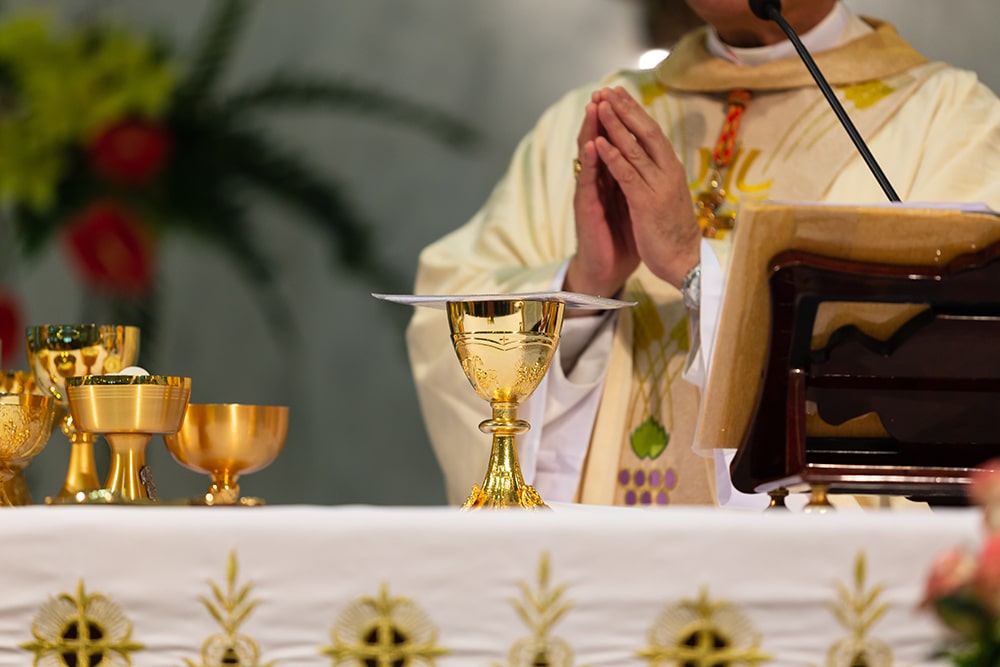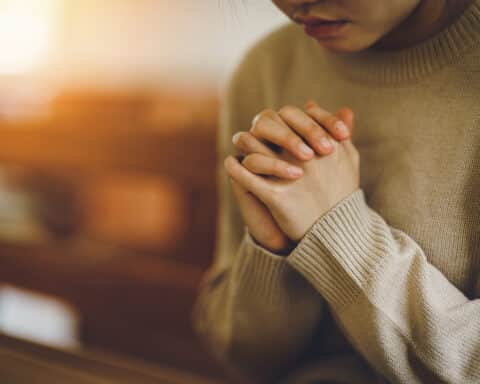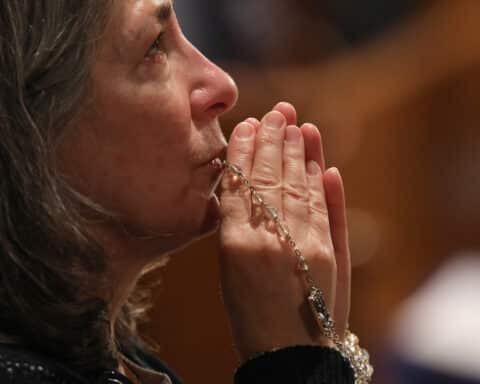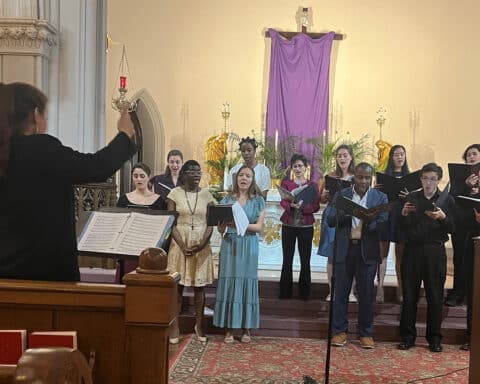
— Name withheld, via email
Answer: It is true, Hebrews does teach the following: “Every priest stands daily at his ministry, offering frequently those same sacrifices that can never take away sins. But this one offered one sacrifice for sins, and took his seat forever at the right hand of God; now he waits until his enemies are made his footstool. For by one offering he has made perfect forever those who are being consecrated. … Where there is forgiveness of these, there is no longer offering for sin” (Heb 10:11-14, 18).
But note first, this is a reference to the sacrifices of the Old Covenant where the Levitical priests offered sacrifices repeatedly. Some were offered daily, and some were offered yearly or in conjunction with voluntary sacrifices, thanksgiving and vows made by individuals that were occasionally required or expected. However, as Hebrews says, Jesus, by one perfect sacrifice has fulfilled all the sacrifices of the old law associated with sin and hope for sanctification. What the old sacrifices could merely point to and hope for, Jesus’ sacrifice actually accomplishes, once and for all who will receive it.
But what of the phrase, “Where there is forgiveness of these [sins], there is no longer any offering for sin”? For indeed, the Catholic Church offers Mass and confession daily. The answer must emphatically be that the Mass is not a new offering for sin but a participation in, and a making present of Christ’s once for all and perfect sacrifice of Calvary. In no way do we see ourselves as sacrificing Christ anew. “We know that Christ, raised from the dead, dies no more; death no longer has power over him. As to his death, he died to sin once and for all; as to his life, he lives for God” (Rom 6:9-10). No, we do not re-offer the sacrifice of Jesus. Rather it, and its effects, are made present. We draw from the founts of mercy Christ made available to us by his perfect sacrifice that was offered once. Since it is perfect, it need not be offered again. But the same text says it was offered for all. And hence, in the Mass, the fruits of Christ’s one and perfect sacrifice are made available to all the faithful down through time. And hence, Jesus himself commanded regarding the Mass, “Take and eat, this is my Body, this is my Blood. … Do this in memory of me.”
Our exile
Question: What do we mean when we speak of “our exile” in the prayer Hail Holy Queen. There are also references to being banished and consigned to misery in a valley of tears. I thought we were children of God.
— Marta Hunter, via email
Answer: Biblically, “exile” refers to the fact that, after original sin, Adam and Eve were banished from the Garden of Eden (cf. Gen 3:24). Hence, we are exiled from there and live in this “Valley of Tears.” Paradise is gone and we now live in “paradise lost.”
After the death and resurrection of Jesus, we can also say that “exile” refers to the fact that we are not living in our true home. For Christ has opened the way not merely back to an earthly paradise, but to heaven. Heaven is now our true homeland. This sinful and suffering world is not our home, and thus, our time here can be considered a kind of exile as we await our summons to “come up higher” to our true and heavenly homeland.
Finally, speaking of this world as an exile, and valley of tears is a sober recognition that life in this world is often hard. And though we may ask God for certain relief, true and lasting joy can only come when we leave this exile for our true home with God.
Prayers like these were written by people who knew far greater hardship than many of us today with our modern comforts, medicines and social safety nets. Often today, our prayers focus more on making this world better than on helping us to endure with holiness and escape to heaven. The comforts of this world are often illusory and are certainly paltry compared to what God truly offers.
Msgr. Charles Pope is the pastor of Holy Comforter-St. Cyprian in Washington, D.C., and writes for the Archdiocese of Washington, D.C. at blog.adw.org. Send questions to msgrpope@osv.com.





